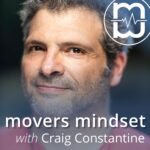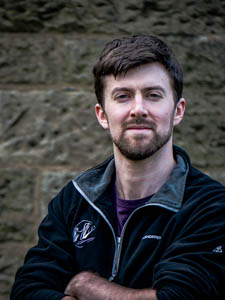
What lessons can parkour teach about culture, education, and personal development?
Craig travels to Edinburgh, Scotland to interview John “Hedge” Hall about the culture of parkour, his ideas on how Scotland views parkour, and his own personal movement journey. Hedge unpacks how different cultures and societies adapt parkour to fit them and the impact of cultural norms on their practice. Touching a bit on coaching, Hedge discusses the impact of educational environments on his students.
“Parkour is shaped like the hole that people feel is missing in their society.” ~ John ‘Hedge’ Hall (12:00)
The conversation explores the cultural nuances of parkour, showing how it adapts to the societal needs of different regions. It examines the contrasting competitive nature of parkour in the United States versus its integration into daily life and education in Scotland. Insights from anthropological studies are discussed, highlighting how parkour serves as a response to societal gaps, shaped by local culture.
The discussion shifts to pedagogy, with an emphasis on using parkour as a tool for inclusive education. It explains the value of teaching novices through inflexible concepts while gradually introducing flexible ones as they gain experience. Practical examples include introducing parkour into schools to foster natural play and physical development. The speaker also shares personal reflections on self-improvement and the importance of honesty in building habits, tying it to broader life lessons.
Takeaways
Parkour and culture — Parkour adapts to the unique cultural norms of each society, reflecting local values and needs.
Teaching parkour — Effective parkour education emphasizes inclusive practices, starting with simple, structured techniques.
Flexible versus inflexible concepts — Novices learn best with clear, specific instructions, while experts thrive on adaptable, abstract ideas.
Integration into education — Parkour can enhance physical education by encouraging natural play and skill development.
Habit tracking — Monitoring personal behaviors fosters self-awareness and enables lasting habit formation.
Self-improvement — Reflection and honest evaluation are essential for personal growth and effectiveness as a teacher.
Role of play — Play is critical for physical and mental development, serving as a form of practice for life skills.
Passion for teaching — Excellence in teaching requires dedication, constant learning, and adaptability.
Resources
Alex Pavlotski’s research on parkour — A global anthropological study on parkour communities and their cultural significance.
Access Parkour — The organization promoting parkour education and inclusivity in Scotland.
Headspace app — A resource for learning meditation and building mindfulness habits.
(Written with help from Chat-GPT.)
— Hello👋 I’m Craig Constantine.
In the Movers Mindset podcast, I talk with movement enthusiasts to learn who they are, what they do, and why they do it. I’m interested in the nature and philosophy of movement and in exploring themes like independence, self-direction, and human excellence. My interests color each conversation and provide some structure to Movers Mindset. But since I like to take the scenic route, every conversation ends up going somewhere unique.
The purpose of Movers Mindset is to create and share great conversations with movement enthusiasts. Each conversation feeds my insatiable curiosity, but I share them to turn on a light for someone else, to inspire them, or to give them their next question.
I appreciate your time and attention, and I don’t take it for granted.
— Thank you!
Want more? Subscribe to the email list for weekly updates—new episodes and archive highlights delivered to your inbox.
I invite you to cultivate a meaningful life—through presence, not pursuit. You can learn more about me and all my projects at, https://craigconstantine.com.
If you like what I’m doing through Movers Mindset, learn more about becoming a patron.
ɕ
